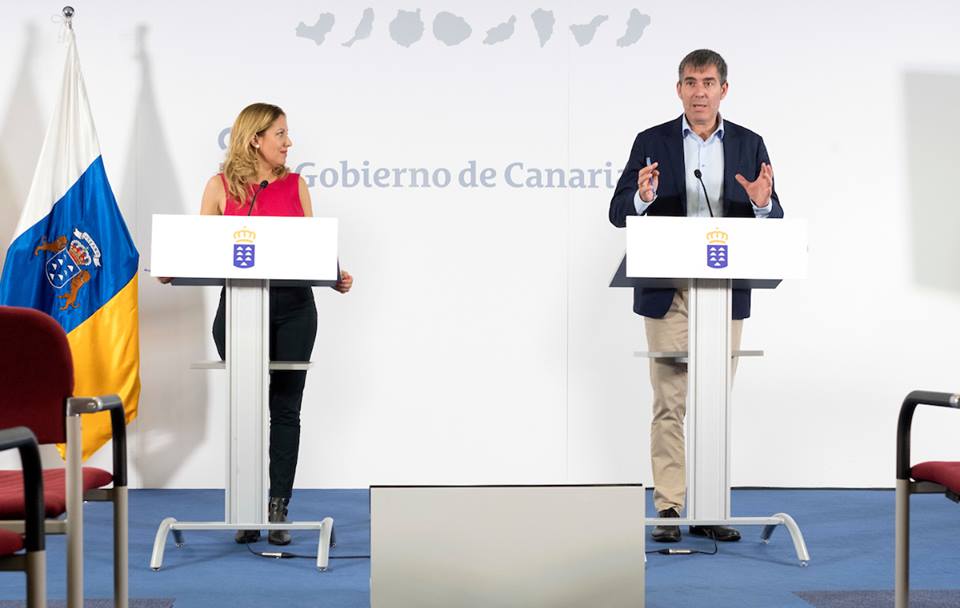
the Minister of Finance of the Canary Islands Government, Rosa Dávila and the President of the Canary Islands Government Fernando Clavijo,
The Government of the Canary Islands has approved the budget for the Autonomous Region for 2018, which has grown by 12.9% to €8.23 billion and will this year be the highest in the history of the archipelago.
In short :
• The accounts for 2018 amount to €8.239 billion , €938 million more than in 2017, an increase of 12.9%
• The extra financing of essential public services is to increase productive investment and employment, and provide tax reductions, which are the main priorities of budgets
• €5.8 billion have been allocated to essential public services, €439.7 million more than in 2017
• Healthcare increases of €231.7 million, education by €100.4 m and social policies by €99.5 million
• Investment grows by €318.2 million, +45%
• Debt has been reduced by €258 million
• The accounts include tax rebates of €124 million with €4.5 million destined to reinforce the fight against tax fraud
The Canary Islands become first community in Spain to eliminate taxes on women´s sanitary products
In regard to measures on income tax that will have an effect on the income statement of 2017 and actions on Indirect General Tax of the Canary Islands (IGIC) one highlight is the elimination of the pink rate – tampons, sanitary towels and compresses–, where the IGIC rate has changed to zero for the “extra cost that it has for women”, being the first community in Spain to eliminate the pink rate.
The tax reduction in the Canary Islands includes 18 measures, among which are deductions in daycare expenses of €400, which will benefit some 21,750 children in the archipelago; deductions of €100 in the costs of school books, school materials, transportation and uniforms (benefiting 348,870 students); and the €250 discount for fostering minors – which equates foster children with adopted and biological children – (2,500 families).
A deduction of €500 for families that include people with disabilities or care dependents (41,700 families), as well as a 10% reduction on expenses for illness (dentist, oculist, pregnancy and childbirth, etc.) for which it is necessary that the payment can be justified – ie has been paid by bank transfer or card–.
In addition, €100 will be deducted per single-parent family (helping 6,600 families); a 10% reduction for housing adaptation works for families with dependent or disabled people (41,700 families); a deduction of 10% for up to €7,000 of expenditure on works that contribute to the energy efficiency of main homes; an improvement of 50% to the state deduction on donations to NGOs for social and ecological purposes, as well as a deduction of 15% on donations for cultural and research purposes (88,000 people).
Individuals who bill less than 30,000 will not pay IGIC (64,000 beneficiaries); also referred to is the proposed reduction of the IGIC rate from 7% to 3% for young people, under 35, who buy their first home (2,200 young people); reductions in telephone bills, both fixed and mobile, from 7 to 3 percent; and a reduction of the IGIC rate that is applied to works in renovation and improvement of a habitual (main) residence, also falling from 7% to 3% (6300 homes).













